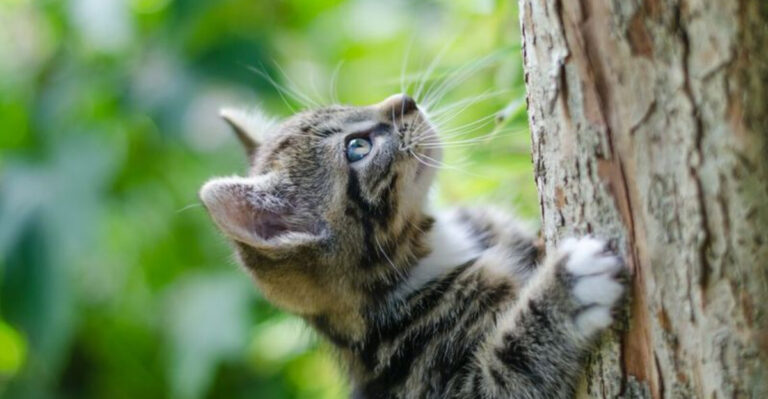9 Scents Dogs Despise (And 6 Cats Can’t Stand Either)
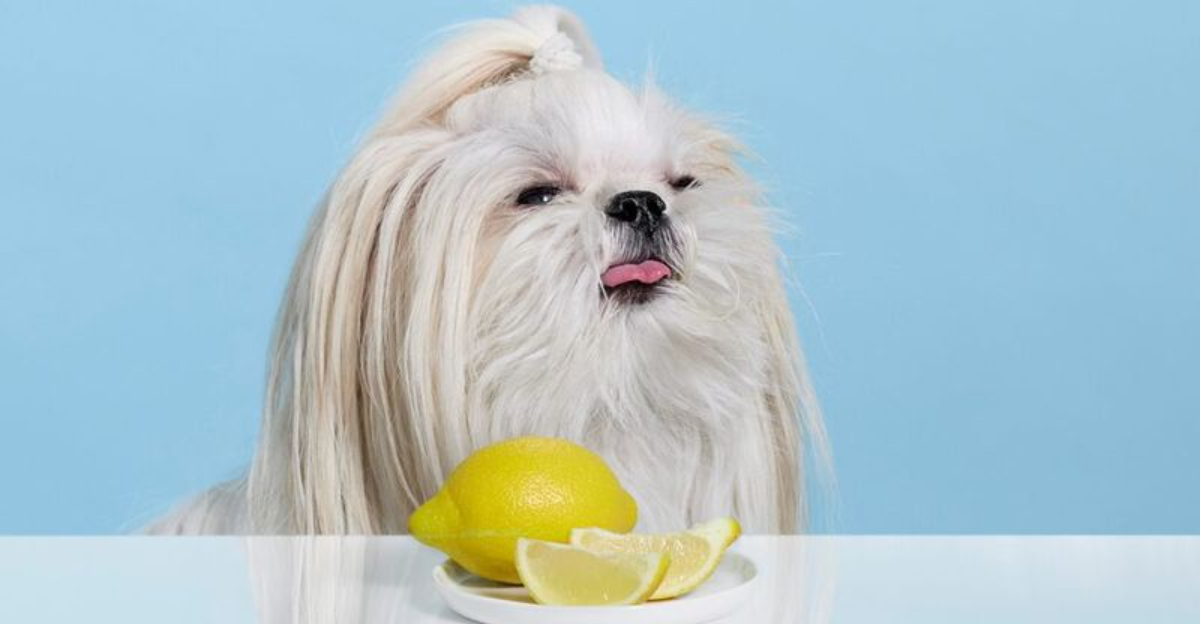
Our furry friends experience the world primarily through their noses, with sensory abilities that far surpass our own. While we might enjoy certain fragrances, many common household scents can send our pets running for cover.
Understanding which smells make your dog or cat uncomfortable isn’t just interesting – it’s crucial for creating a comfortable home environment and avoiding unintentional stress for your beloved companions.
1. Vinegar Sends Canine Noses Running
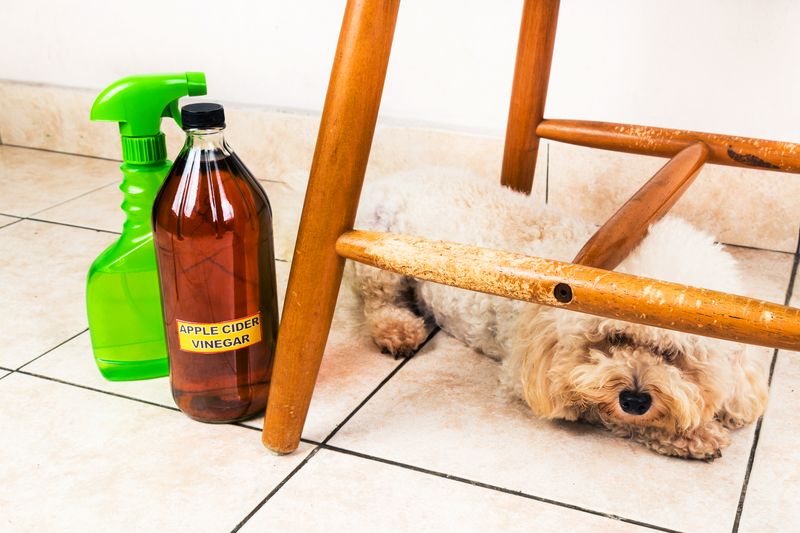
The sharp, acidic smell of vinegar makes most dogs turn tail immediately. Their heightened sense of smell amplifies vinegar’s pungency to almost painful levels.
Many pet parents use diluted vinegar solutions as a natural way to keep curious pups away from houseplants or furniture. White vinegar works particularly well as a boundary-setting tool without harming your four-legged friend.
Despite its effectiveness as a deterrent, vinegar also serves as an excellent pet-safe cleaning agent – just make sure your dog isn’t around when you’re mopping with it!
2. Citrus Fruits Make Dogs Flee
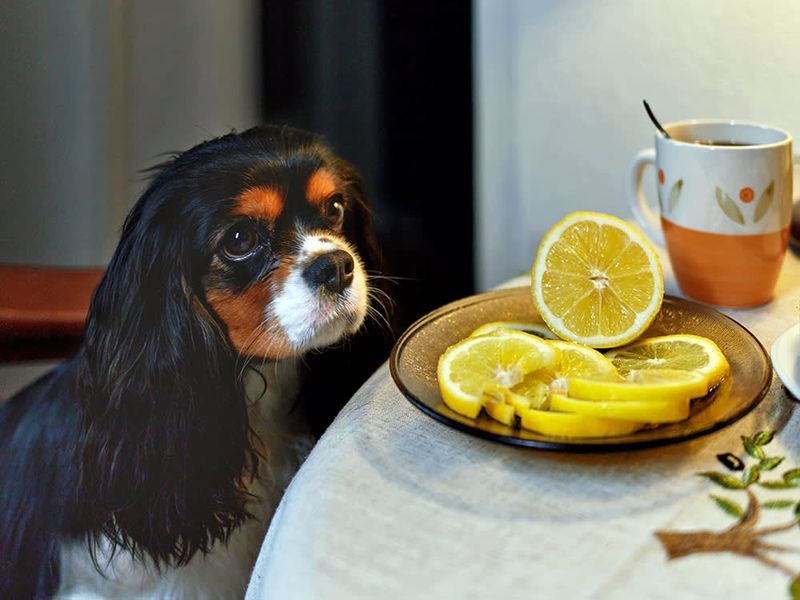
Dogs naturally recoil from the sharp tang of lemons, oranges, and grapefruits. Their sensitive noses find the acidic compounds in citrus fruits overwhelming and unpleasant.
Many commercial dog repellents contain citrus oils for this very reason. If you’re trying to keep your pup away from certain areas of your home, a spritz of diluted lemon juice might do the trick naturally.
Interestingly, while dogs hate the smell, many humans find it refreshing and clean – making it a perfect compromise for pet-friendly cleaning products that won’t attract your canine companion.
3. Alcohol Offends Doggy Sensibilities

Ever notice your dog retreating when you break out the beer or wine? Alcohol’s strong aroma contains volatile compounds that dogs find particularly offensive.
Their olfactory receptors – about 300 million compared to our measly 6 million – make this smell nearly unbearable. Hand sanitizers, perfumes, and many cleaning products contain alcohol that might send your pup packing.
This aversion actually serves as natural protection, since alcohol is toxic to dogs. Keep alcoholic beverages out of reach and be mindful when using alcohol-based products around your sensitive canine friend.
4. Nail Polish Makes Pups Panic

The chemical cocktail in nail polish and remover contains acetone and formaldehyde – substances that make dogs incredibly uncomfortable.
These strong-smelling solvents can actually irritate their respiratory systems and cause distress. Many dogs will leave the room entirely during at-home manicure sessions. The smell lingers on their powerful scent radar long after humans stop noticing it.
For the sake of your furry friend, consider painting your nails in a well-ventilated area away from pets. Better yet, seek out water-based, odorless alternatives that won’t send your dog hiding under the bed.
5. Chili Peppers Burn Canine Noses
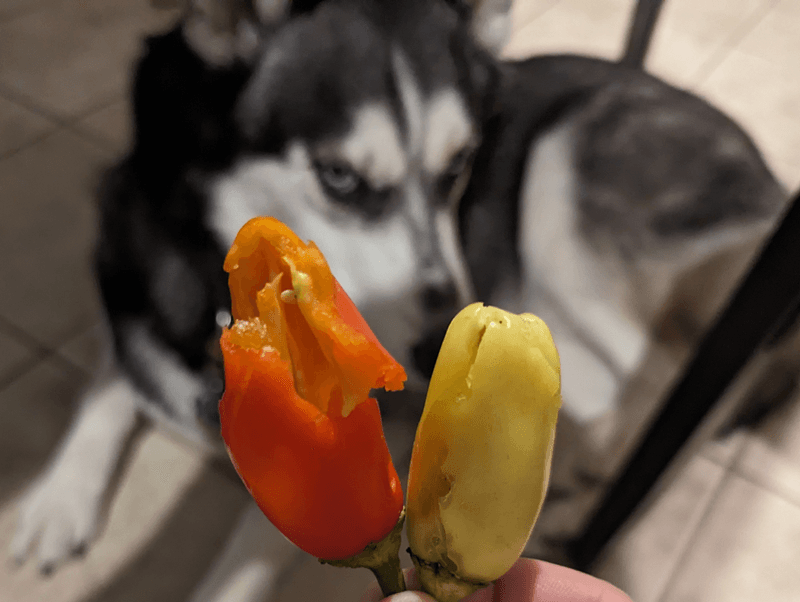
The compound capsaicin gives chili peppers their heat – and drives dogs absolutely crazy. While humans might enjoy the spicy kick, dogs experience the sensation as genuinely painful through their sensitive nasal passages.
Some gardeners even use cayenne pepper as a natural dog repellent to protect plants and flower beds. The burning sensation is so uncomfortable that most dogs learn to avoid these areas after just one encounter.
If cooking with hot peppers, make sure to ventilate your kitchen well. Your dog will appreciate not having their nose assaulted by these potent spices that register as genuine threats to their sensitive systems.
6. Mothballs Make Mutts Miserable
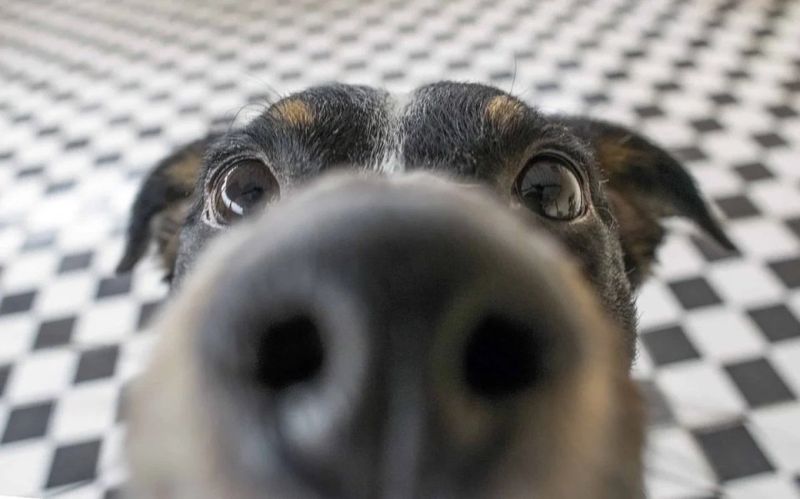
The chemical naphthalene gives mothballs their distinctive odor – one that dogs find particularly offensive. Their powerful noses detect this pungent smell from remarkable distances, triggering immediate avoidance behaviors.
Mothballs aren’t just unpleasant for dogs; they’re dangerous too. If ingested, they can cause serious neurological damage, liver problems, and even death in pets.
Consider cedar blocks, lavender sachets, or other natural alternatives to protect your woolens. These options repel moths effectively without creating a toxic environment that your furry friend finds unbearable.
7. Eucalyptus Empties The Dog Room
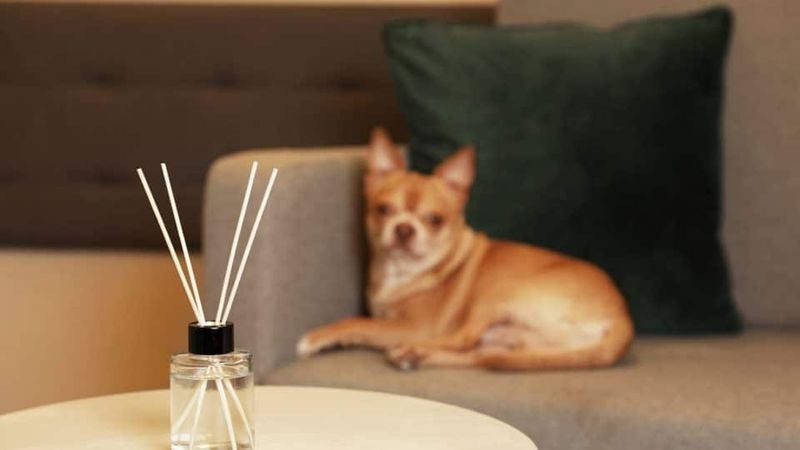
The strong, medicinal scent of eucalyptus oil sends most dogs scrambling in the opposite direction. While humans often enjoy its refreshing quality, dogs experience the intense aroma as overwhelming and irritating to their sensitive noses.
Many essential oil diffusers and natural cleaning products contain eucalyptus oil. Be cautious when using these around your canine companions, as the smell can cause significant discomfort.
Beyond just disliking the smell, eucalyptus oil can be toxic to dogs if ingested or absorbed through the skin in concentrated forms. Keep these products stored safely away from curious paws and noses.
8. Fresh Paint Frightens Fido

The powerful chemical cocktail in fresh paint drives most dogs to seek shelter elsewhere. The volatile organic compounds (VOCs) released during painting projects overwhelm their sensitive olfactory systems.
Many dogs will refuse to enter newly painted rooms for days or even weeks afterward. Their noses can detect the lingering chemicals long after humans stop noticing the smell. When planning home improvement projects, consider using low-VOC or no-VOC paint options.
Additionally, ensure proper ventilation and perhaps arrange for your dog to stay elsewhere during the most intense odor period to avoid unnecessary stress.
9. Cleaning Products Cause Canine Concerns
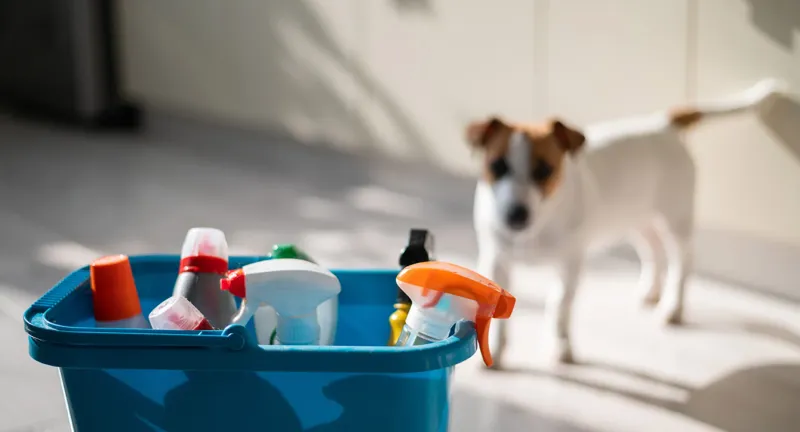
Most commercial cleaning products contain ammonia or chlorine – chemicals that dogs find absolutely repulsive. Their powerful noses detect these harsh compounds at concentrations far below human perception.
Beyond just disliking the smell, many cleaning chemicals pose genuine health risks to pets. The fumes can irritate their respiratory systems and cause eye discomfort or skin problems with repeated exposure.
Consider switching to pet-safe, natural cleaning alternatives like diluted vinegar, baking soda, or specialized pet-friendly products. Your dog will appreciate breathing easier, and you’ll enjoy a clean home without distressing your furry family member.
10. Cats Loathe Citrus Too
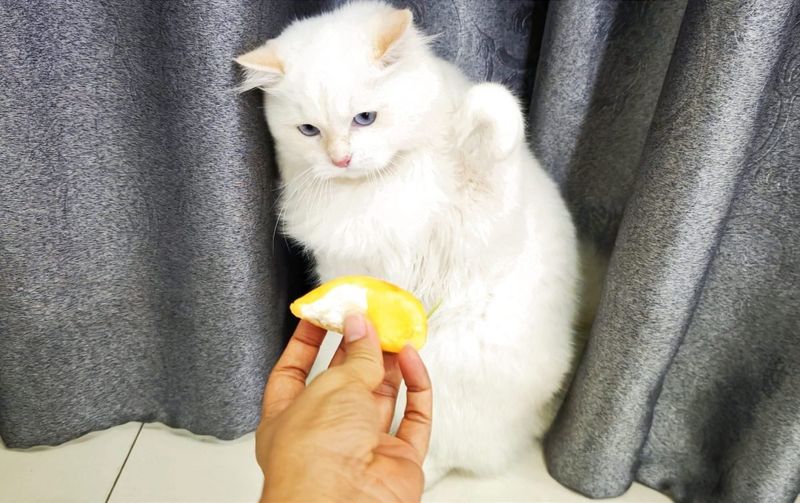
Felines share their canine counterparts’ intense dislike of citrus scents. The sharp, acidic smell of lemons, oranges, and grapefruits triggers immediate aversion in most cats.
Many cat owners use this natural aversion to protect houseplants or discourage scratching in certain areas. A light spritz of diluted lemon juice on forbidden surfaces often works wonders without harsh chemicals.
The evolutionary reason behind this aversion remains unclear, but some experts suggest citrus fruits might have posed dangers to wild feline ancestors.
Whatever the reason, your cat will definitely give you the cold shoulder after you peel that orange!
11. Banana Peels Baffle Feline Friends
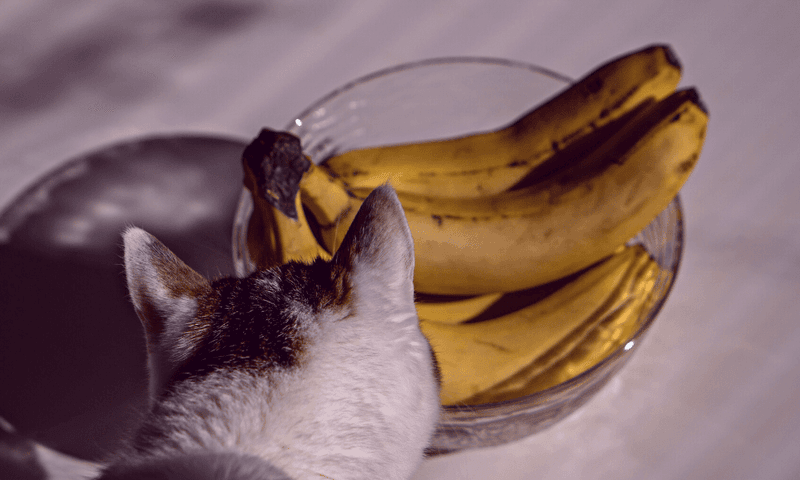
While humans might enjoy the sweet smell of bananas, cats find something deeply disturbing about them – particularly the peels.
The compounds that give bananas their distinctive smell contain chemicals that cats interpret as threatening. Some gardeners actually bury banana peels around plants they want to protect from neighborhood cats.
The lingering odor creates a natural boundary that most felines won’t cross. Interestingly, this aversion doesn’t appear to be universal among all cats.
Some curious kitties might investigate briefly before deciding the smell isn’t to their liking, while others will bolt at the first whiff!
12. Mint Makes Kitties Cringe
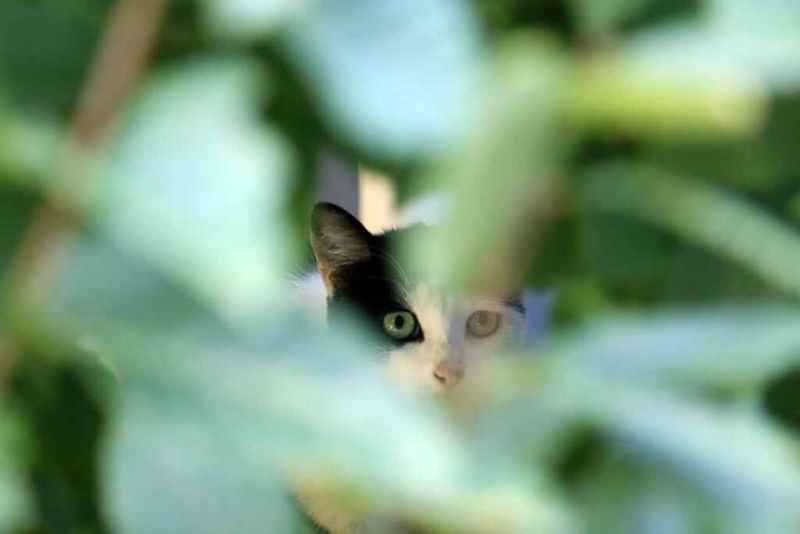
Peppermint, spearmint, and other minty scents contain compounds that cats find overwhelming and unpleasant. Their sensitive olfactory systems interpret the cooling sensation as irritating rather than refreshing.
This natural aversion helps explain why mint-scented repellents work so effectively to keep cats away from gardens or furniture. Many cats will actively avoid rooms where essential oil diffusers dispense mint scents.
Gardeners can take advantage of this by planting mint around areas they want to protect from curious cats. Just be careful – mint spreads aggressively and can quickly take over your garden if not contained properly!
13. Onions And Garlic Offend Feline Sensibilities
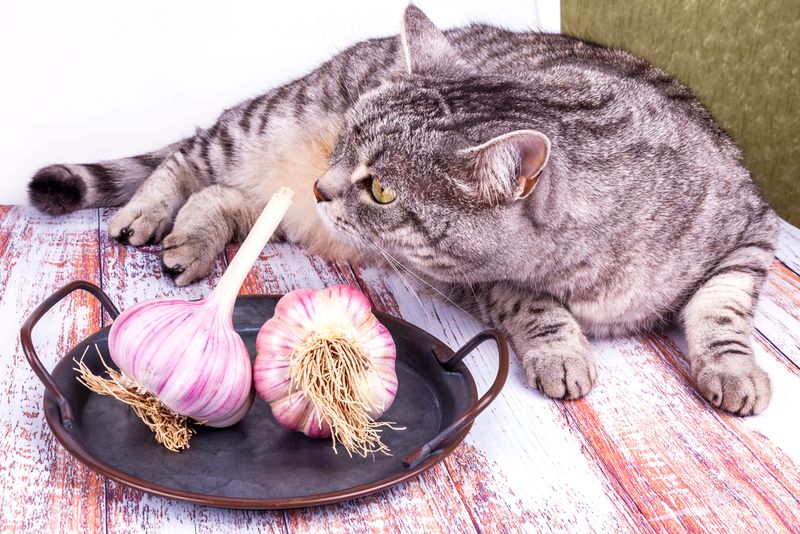
The pungent aroma of onions and garlic sends most cats running for cover. These strong-smelling foods contain sulfur compounds that cats find particularly offensive to their delicate noses.
Beyond just smelling bad to cats, these foods are actually toxic to them. Even small amounts can damage their red blood cells and cause dangerous forms of anemia.
Most cats will naturally avoid these foods due to their smell alone. However, when cooking with these ingredients, make sure to keep curious kitties out of the kitchen and dispose of scraps where determined paws can’t reach them.
14. Dirty Litter Boxes Disgust Cats
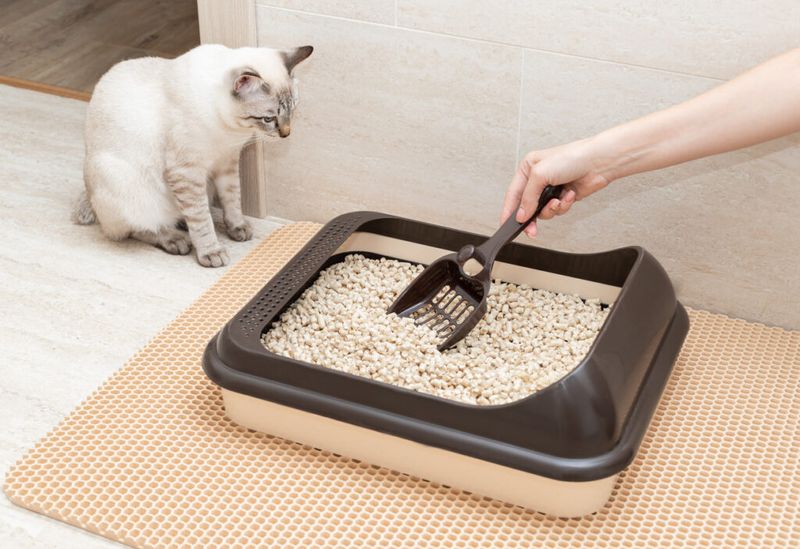
While not surprising to cat owners, cats themselves have a strong aversion to the smell of their own waste. Their powerful sense of smell makes a dirty litter box genuinely offensive to them.
Many litter box avoidance issues stem directly from cats refusing to use facilities they consider unclean. Their fastidious nature and sensitive noses make them extremely particular about bathroom hygiene.
Regular scooping (ideally daily) and complete litter changes every 1-2 weeks help ensure your feline friend continues using their designated bathroom spot.
Consider unscented litter for particularly sensitive cats who might find perfumed varieties overwhelming.
15. Certain Perfumes And Colognes Bother Both Species

Heavy, musky perfumes and colognes contain concentrated scents that can overwhelm both dogs and cats. Their heightened olfactory senses interpret these artificial fragrances as invasive and uncomfortable.
Many pets will actively avoid family members wearing strong fragrances. Some might even sneeze, paw at their noses, or leave the room entirely when exposed to particularly potent scents.
If you notice your pet becoming distant after you apply perfume, consider switching to lighter, more natural fragrances or reducing the amount you use.
Your furry friends will appreciate being able to recognize your natural scent without the overwhelming chemical overlay.

